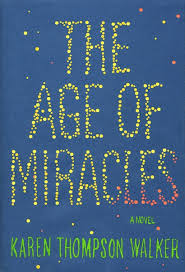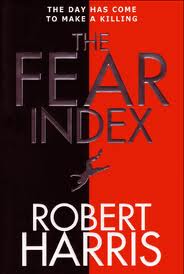 Larry Colton
Larry Colton
Crown
|
Chuck opened the small gift box and removed a Saint Christopher’s medal … “It’s weird,” he said. “For the last few days I’ve had a feeling that something is going to happen on this patrol.” “Like what?” “I don’t know. It’s just a feeling that won’t go away.” “Why do you think that is?” He took her by the hand. “Probably because for the first time in my life I have somebody I really care about.” It was the closest he’d come to saying he loved her. from No Ordinary Joes |
Hardwired to tell our stories
In Ridley Scott’s classic sci-fi film, Blade Runner, the dying leader of the replicants (androids programmed with built-in termination dates) recalls the extraordinary experiences he has had and sadly realizes “all those moments will be lost in time like tears in the rain.”
There seems to be something hardwired into us humans that makes us want to tell our stories. From prehistoric cave paintings to the current plethora of self-published memoirs, we seem to have this deep need to leave some kind of testament that we were here, and that what we personally experienced was significant and worth sharing.
Larry Colton, the featured writer at this year’s Word Catcher event and author of Goat Brothers and Counting Coup, tells the stories of four men in his most recent book, No Ordinary Joes.
Chuck Verhalin of Dundee, New York, Bob Palmer of Medford, Oregon, Tim McCoy of Dalhart, Texas, and Gordy Cox of Yakima, Washington were all serving on the submarine USS Grenadier when it was damaged fatally by an aerial torpedo on April 23, 1943, and sank to the bottom of the Strait of Malacca. Through a daring maneuver, the crew was able to float the sub slowly to the surface where they were met by a Japanese warship and became prisoners of war.
Had they known what was ahead of them, the crew might have chosen to remain on the ocean’s bottom. Like Dick Cheney, the Japanese military could not be bothered with the niceties of the Geneva Convention, and the brutality, even outright cruelty, the prisoners experienced from their guards is harrowing to read.
The majority of the book covers their experiences as sailors, then prisoners, each chapter written from one of the four men’s viewpoints. Eventually, with the war’s end, they were liberated and returned to a very different America than they had left. All settled into civilian life, finding wives, having children, and making a living.
We are then shuttled sixty years into the future where these young men are now old men in their eighties, “whose lives describe the lifetime burden of war.” Each has problems with alcohol, women, and with their sons.
They wanted their stories told, and Colton performed a tremendous service to them by writing this book. It’s perhaps unfortunate that none of the four lived to read it. But then, the stories we want to leave aren’t intended for us anyway.
This review first appeared in The Columbia River Reader (April 15-May 14, 2012.) Reprinted with permission.


 Katherine Boo
Katherine Boo Charlotte Rogan
Charlotte Rogan Gillian Flynn
Gillian Flynn Karen Thompson Walker
Karen Thompson Walker




